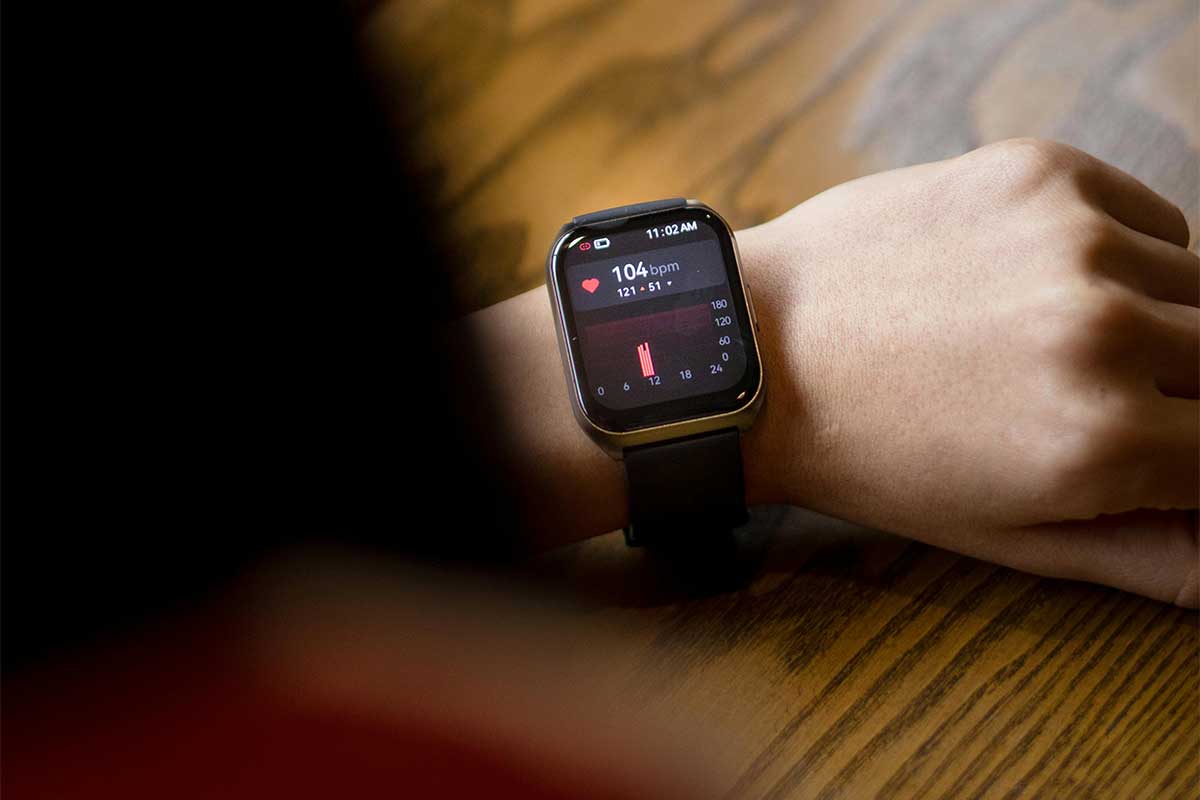
Biohacking
In today’s wellness-driven world, the term “biohacking” is becoming increasingly popular. Once a fringe concept associated with Silicon Valley entrepreneurs and tech-savvy fitness buffs, biohacking is now entering mainstream conversations about health optimization, mental clarity, and personal transformation. But what does it mean, and more importantly—can it help someone recover from drug or alcohol addiction?
At West Coast Detox, we believe in combining time-tested addiction treatment methods with forward-thinking approaches that support full-body and mind recovery. Biohacking offers promising tools that can enhance traditional addiction recovery strategies, helping individuals regain balance, energy, and motivation as they work to rebuild their lives. In this article, we’ll explore what biohacking is, how it works, and how its techniques can be safely and effectively integrated into your addiction recovery plan.
What Is Biohacking?
Biohacking, at its core, is the practice of making small, strategic changes to your lifestyle, biology, and environment to improve your physical and mental performance. It’s based on the idea that with the right knowledge and tools, you can “hack” your biology to function at its highest potential.
Types of biohacking range from simple, everyday habits (like improving sleep quality or nutrition) to more advanced technologies (like neurofeedback, cold therapy, or nootropics).
Though some aspects of biohacking can be extreme, such as implanting devices or genetic experimentation, most practical biohacks are safe, accessible, and scientifically supported ways to boost well-being—especially for those recovering from substance use disorders.
Why Biohacking Matters in Addiction Recovery
Addiction impacts the body, mind, and spirit. Long-term substance abuse can:
- Deplete vital nutrients
- Disrupt sleep and circadian rhythms
- Alter brain chemistry
- Impair cognition and memory
- Contribute to anxiety, depression, and low motivation
Traditional treatment methods—like therapy, medication-assisted treatment (MAT), support groups, and counseling—are foundational in recovery. However, biohacking offers complementary techniques that can help:
- Rebalance the nervous system
- Improve brain function and mood
- Increase energy, focus, and sleep
- Support emotional regulation
- Reduce cravings and relapse risk
Think of biohacking as a self-care toolbox that strengthens your recovery from the inside out.
10 Ways Biohacking Can Support Addiction Recovery
Below are ten safe and effective biohacking strategies that can enhance your healing process and promote long-term recovery.
1. Optimize Your Sleep Cycle
Why it matters:
Addiction wreaks havoc on the body’s natural sleep rhythms. Poor sleep is a major relapse trigger, affecting mood, decision-making, and stress tolerance.
Biohack it:
- Stick to a consistent sleep schedule
- Use blue light blockers at night
- Install blackout curtains and eliminate bedroom electronics
- Try magnesium glycinate or melatonin (with medical supervision)
- Use calming practices like meditation before bed
Getting restorative sleep helps the brain repair itself, regulate emotions, and reduce cravings.
2. Improve Brain Function with Nootropics
Why it matters:
Many people in early recovery experience brain fog, low motivation, and difficulty concentrating—especially if stimulants or depressants were abused.
Biohack it:
Nootropics are substances that may enhance cognitive performance. Natural options include:
- L-theanine (promotes relaxation and focus)
- Rhodiola rosea (supports mental energy and stress resistance)
- Lion’s Mane mushroom (may promote neurogenesis)
- Omega-3 fatty acids (reduce inflammation and improve brain function)
Note: Always consult with a healthcare professional before using supplements.
3. Use Cold Exposure for Mood and Stress Relief
Why it matters:
Cold exposure, such as cold showers or ice baths, can trigger a dopamine release, reduce inflammation, and improve stress resilience.
Biohack it:
- Take a 30–60 second cold shower daily
- Try ice packs on the back of your neck
- Gradually build tolerance under safe, supervised conditions
Cold therapy can promote mental clarity, calmness, and resilience, all vital in addiction recovery.

4. Heal Your Gut for Mental Health
Why it matters:
Your gut is home to trillions of microbes that influence brain health, mood, and immune function. Alcohol and drugs often damage gut health, leading to anxiety, depression, and fatigue.
Biohack it:
- Eat probiotic-rich foods (yogurt, kimchi, sauerkraut)
- Include prebiotic fiber (bananas, garlic, oats)
- Avoid sugar, processed foods, and artificial sweeteners
- Consider high-quality probiotic supplements
A healthier gut contributes to a brighter mood and more balanced mental state.
Get Your Questions Answered
Reach out today to get the answers you need about drug and alcohol detox. Our compassionate team is here to guide you through every step of the process and help you take the first step toward recovery.

5. Track Biometrics to Stay Accountable
Why it matters:
In recovery, it’s important to become aware of how your body is responding to new habits and stressors.
Biohack it:
Wearable devices like Oura Ring, Fitbit, or WHOOP can monitor:
- Heart rate variability (HRV)
- Sleep quality
- Activity levels
- Recovery metrics
Tracking these indicators can help you stay motivated, aware, and engaged in your healing journey.
6. Harness Light Exposure for Energy and Sleep
Why it matters:
Substance use disrupts the body’s natural circadian rhythms, often leading to insomnia or low energy.
Biohack it:
- Get 10–20 minutes of sunlight first thing in the morning
- Avoid bright lights and screens at night
- Consider red-light therapy to improve sleep and reduce inflammation
Proper light exposure helps regulate melatonin, cortisol, and mood-related hormones.
7. Practice Breathwork and Mindfulness
Why it matters:
Stress, anxiety, and emotional overwhelm are common relapse triggers. Breathwork and mindfulness teach you how to calm the nervous system and stay grounded.
Biohack it:
- Try box breathing (4-4-4-4 count) or 4-7-8 breathing
- Use guided meditation apps like Calm or Insight Timer
- Practice mindfulness during everyday tasks (eating, walking, cleaning)
These practices can retrain your stress response, helping you stay calm, clear, and in control.
8. Experiment with Intermittent Fasting
Why it matters:
Fasting can promote cellular repair, fat metabolism, and mental clarity—though it may not be suitable for everyone in early recovery.
Biohack it:
- Start with a 12-hour fasting window (8 PM to 8 AM)
- Gradually increase to 14–16 hours if your body tolerates it
- Focus on nutrient-dense meals during eating windows
Important: Talk to a healthcare provider before starting fasting, especially if you have a history of eating disorders.
9. Supplement Smartly
Why it matters:
Addiction often depletes essential vitamins and minerals, affecting everything from energy to mood.
Biohack it:
Consider supplementing (under medical supervision) with:
- B-complex vitamins (for energy and nerve repair)
- Magnesium (for relaxation and sleep)
- Vitamin D3 (for immune and mood support)
- Zinc and selenium (for detox support)
Lab testing can reveal what your body truly needs—biohacking is about personalization.
10. Cultivate a Growth Mindset
Why it matters:
Recovery is not just about avoiding relapse—it’s about becoming a healthier, more fulfilled version of yourself. A growth mindset helps you view challenges as opportunities.
Biohack it:
- Read inspiring books or listen to motivational podcasts
- Journal your progress and small wins
- Visualize your goals daily
- Surround yourself with people who lift you up
When you believe you can change, your brain starts building new, healthier neural pathways.

Safety First: Biohacking Within a Treatment Framework
Biohacking should never replace professional treatment, therapy, or medical care. Instead, it should serve as a complement to evidence-based recovery practices. At West Coast Detox, we integrate holistic approaches—including nutrition, fitness, and wellness education—into our personalized treatment plans.
Before trying any new biohacking technique:
- Consult with your doctor or addiction specialist
- Avoid unsafe or untested practices (e.g., extreme fasting, unapproved drugs, or unsupervised experiments)
- Focus on sustainable, science-backed strategies
Recovery is a journey. Biohacking offers tools to support that journey, not shortcuts to escape it.
West Coast Detox: Combining Science, Compassion, and Innovation
At West Coast Detox, we know recovery is not one-size-fits-all. That’s why we embrace cutting-edge methods alongside traditional, proven treatment modalities. Whether it’s medical detox, residential care, or aftercare planning, we treat each client as a whole person—mind, body, and spirit.
Our team stays up-to-date on the latest research in neuroscience, nutrition, and holistic healing to offer a truly integrated approach to addiction recovery. We’ll work with you to create a customized treatment plan that may include wellness strategies like mindfulness, sleep optimization, and nutritional support.
Final Thoughts
Biohacking isn’t about becoming superhuman or chasing perfection—it’s about learning how to work with your biology instead of against it. For those in recovery from drug or alcohol addiction, biohacking can provide valuable support, clarity, and empowerment.
You don’t need to adopt every strategy at once. Start small. Listen to your body. And remember—healing is not just about abstaining from substances. It’s about creating a life you’re excited to live.
If you or someone you love is ready to take the first step toward lasting recovery, West Coast Detox is here to help. Reach out today and discover how science, compassion, and personalized care can transform your life.
Call West Coast Detox now to speak with a compassionate admissions team member and start now.























